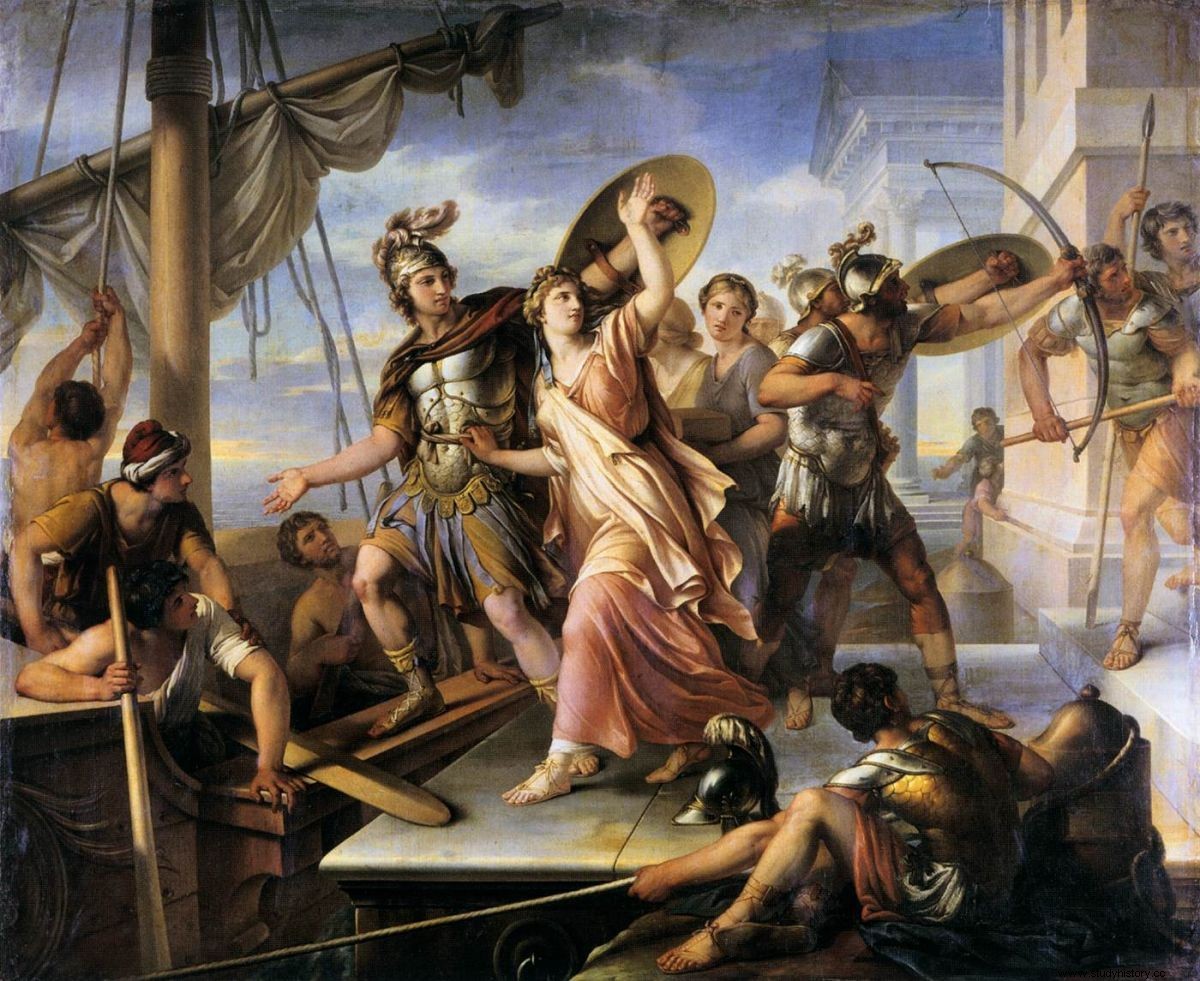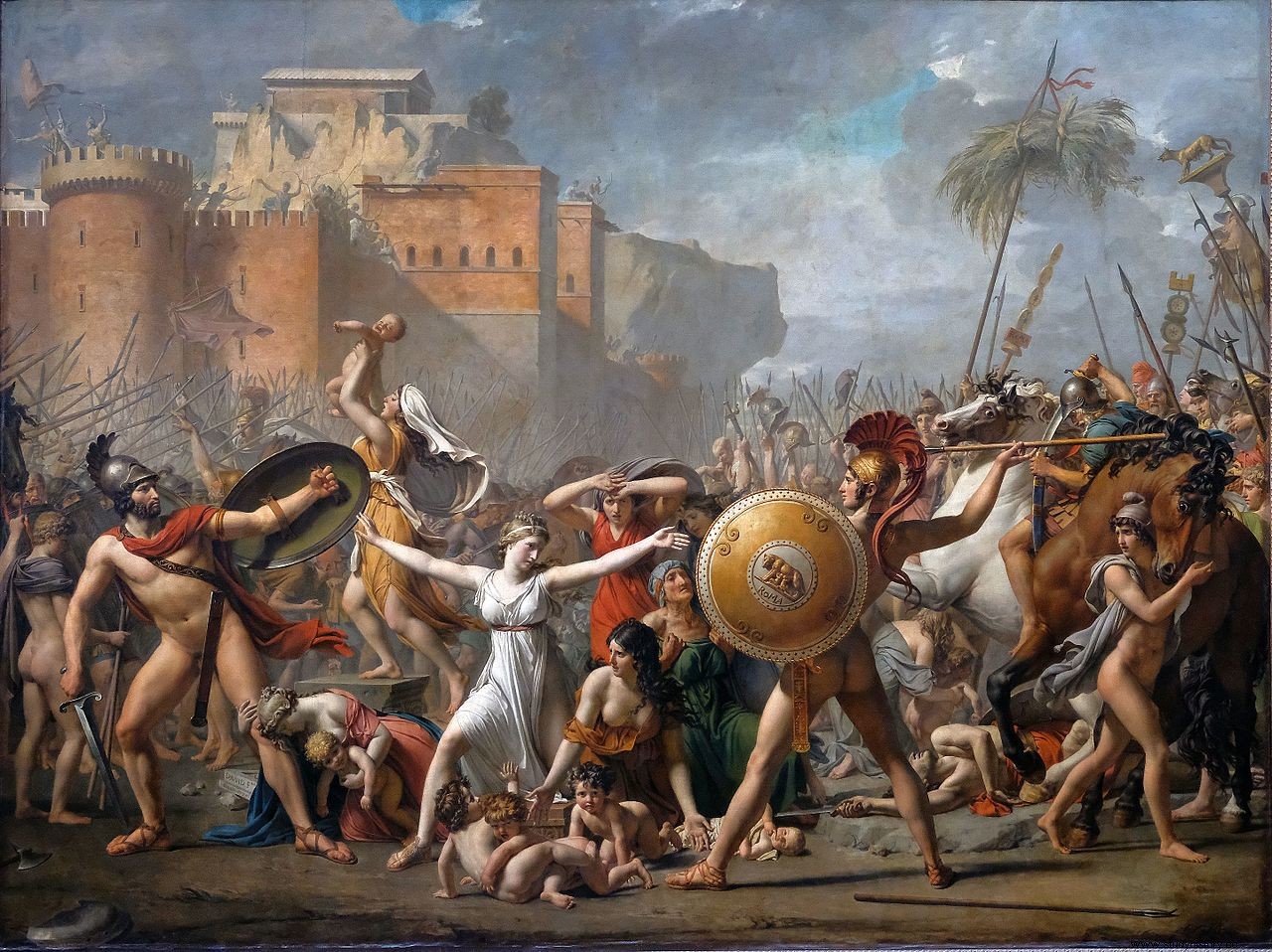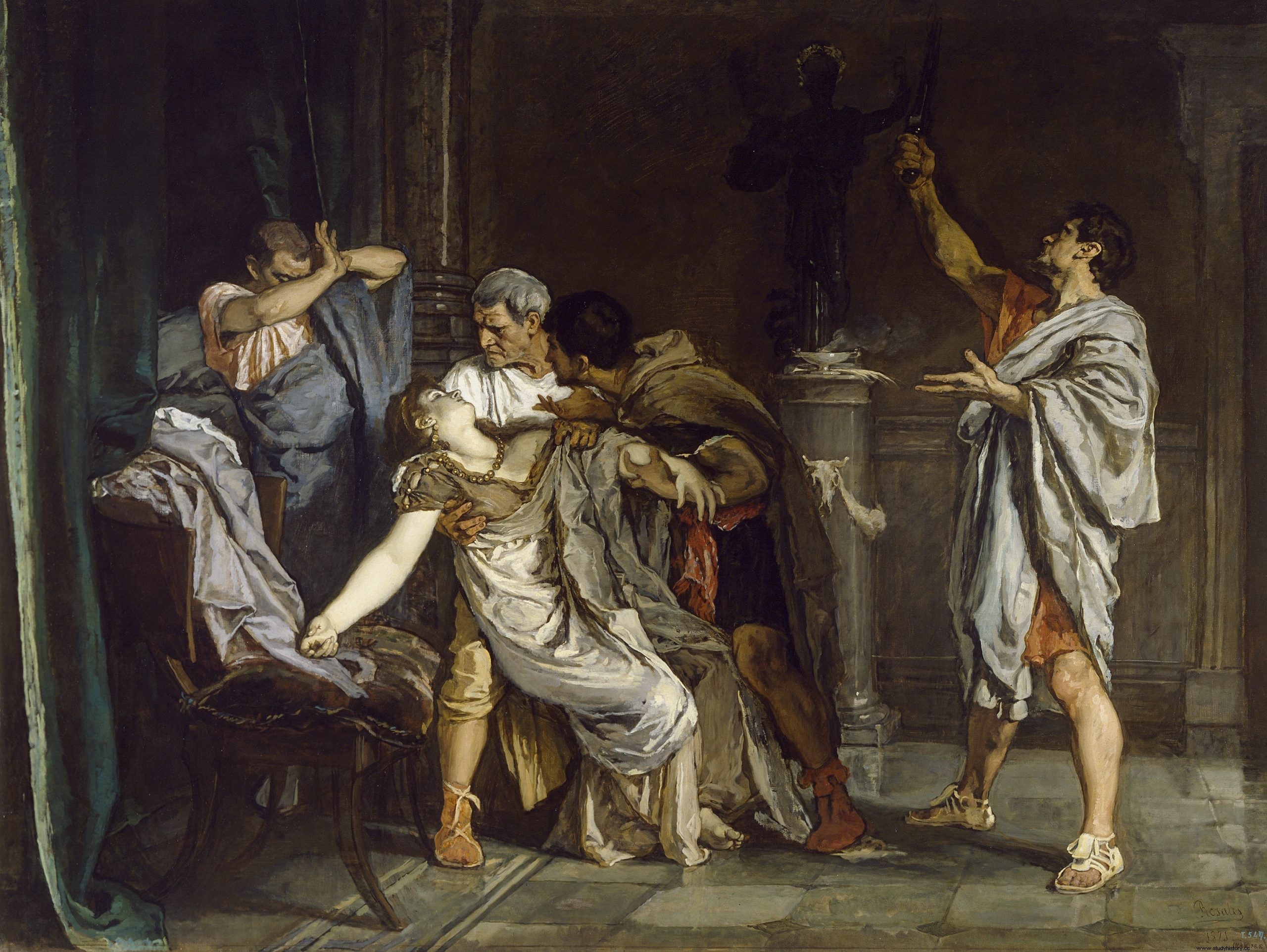War provides men with the perfect psychological setting to vent their contempt for women.
That's how forceful Susan Brownmiller was. , the American journalist and activist, in her book Against Our Will:Men, Women and Rape (1975), in which she framed rape as a political issue, an act of power, and a "weapon of war." Such a miserable act, as repeated throughout history.
Violence in general, and sexual violence in particular, have been one more way of expressing the domination of men over women, becoming the essence of patriarchy. Greek mythology not only reflects in its contents the prevailing sexual discrimination in ancient society, but through myths it contributed to the naturalization and legitimization of patriarchy. If you stop for a moment to think or scratch a little in the world of mythology, you will see the many cases of kidnapping and rape. In fact, Zeus, the father of gods and men, far from having a exemplary attitude, was a recidivist and ruthless rapist:sometimes by force and other times using deceit or transforming himself into another being, alone or in company. of others. A serial rapist. Another example, the Iliad , considered, together with the Odyssey , the most important compositions in the literature of Ancient Greece, are a true reflection of all this:the kidnapping of Helen of Sparta by Prince Paris of Troy, the war and its corresponding violations. Homer says…
Therefore, let no one rush back home before sleeping with the wife of one of the Trojans, and exact revenge for Helen's tears.

The Abduction of Helen (1770) – Gavin Hamilton
Also in the tragedy The Phoenician , by Euripides, it is clear that violence against women in armed conflicts is a common norm:
You will see this Theban citadel subdued, you will see many captive maidens brutally outraged by enemy warriors.
And in Rome, heir to classical mythology, they followed the same pattern. As an example, two relevant events in its history:its origins and the overthrow of the monarchy and the establishment of the Republic.
According to legend, the twin brothers Romulus and Remus founded Rome in 753 BC, and the first king would be Romulus who killed Remus over a boundary dispute. By the way, a question:were they suckled by a 4-legged she-wolf... or two? According to mythology, the twins would have been abandoned and suckled by a she-wolf. I think a she-wolf would have eaten them... and that a two-legged one raised them, because lupa , in Latin, in addition to she-wolf is a whore. And from there, for example, comes the term brothel, which is a brothel. But of course, for the children of the City to say that they are sons of a bitch, it is very strong. So, in one of the best marketing campaigns in history, they turned it around and invented the legend that has survived to this day. Well, that, they founded Rome. The brothers had different opinions on where to found the city and decided to consult the flight of birds. Romulus saw twelve vultures flying over the Palatine Hill and Remus saw six on another hill. So Rómulo, to delimit the new city, drew a box with a plow and swore that he would kill whoever dared to cross it. Remo, thinking that he wouldn't dare or because he was a bit cocky, crossed the line and his brother killed him, leaving Romulus as the only and first king of Rome. To populate the newly created city, the king accepted all kinds of fugitives, refugees and uprooted from neighboring cities, but the colony was made up entirely of men. Without women, it would be very difficult for Rome to endure. They put ads in all the media, like the cowboy movie Caravan of Women , but no one came, so they decided to do it by force. They invited the Sabines, who inhabited the neighboring colony of the Quirinal, to a kind of game with a final banquet, and there they went. At Romulus's signal, and when the wine was already doing its thing, the Romans kidnapped the Sabine women and drove the men away. After those moments of bewilderment and without knowing what was going to happen to them, Rómulo gathered them together and told them not to fear for their lives, that they simply wanted to marry them and have children. The Sabines swore revenge and declared war on them. Logically, I messed up that of God is Christ. At one point in the fight, in a famous scene, many times represented in art, the Sabine women intervened between the contenders to stop the battle that, regardless of who was victorious, they lost. If the Sabines won, they would lose their husbands, and if the Romans won, they would have to mourn the death of fathers and brothers. So the opponents laid down their arms and signed peace.

The Rape of the Sabine Women (1799) by Jacques-Louis David.
Also in the overthrow of the Roman monarchy, in 509 BC, a woman was the protagonist or, rather, the rape of a woman. In this case, the patrician Lucrecia . By the way, another story, just like the kidnapping of the Sabine women, which has captivated artists of all times and from all disciplines.
According to the historian Tito Livio, in Ab Urbe Condita Sixth Tarquinius, son of King Lucius Tarquinius the Proud, and his cousin Tarquinius Collatinus were having drinks one day, and their conversation led them to discuss which of his wives was the most virtuous. It is what wine has, which usually takes you through the hills of Úbeda. So, they decided to visit their respective wives to see what they were up to. And Lucrecia won, Colatino's wife, who was found knitting at home, while Sexto's wife was on sale. Sextus was the king's son and he was not going to let it stay that way. Taking advantage of the absence of her cousin, Sexto appeared in Lucrecia's case and raped her. Now, Lucrecia was no longer the most virtuous. She had lost her honor. Lucrecia sent a message to her father and her husband to come home. She told them what had happened and a knife that she had hidden in her clothes was plunged into her heart... and there she herself died. Despite the fact that she was the one who was violated and forced, the sexual assault implied an outrage on the family honor of the victim, and with her death she cleaned up her honor and that of her family. Her father and her husband swore revenge…
By this pure blood, I swear before the gods that I will pursue Lucius Tarquinius Superbus and all his cruel family with fire and iron, and that none of them, nor any other, shall henceforth be King of Rome. /p>
After securing the support of the army and the people, horrified by the violation, they forced Tarquin the Proud and his children into exile. In this way, the rape of Lucretia would have been the reason for the end of the monarchy and the rise of the Roman Republic.

The death of Lucrecia (1870) – Eduardo Rosales Gallinas
And since there is something here for everyone, in the Bible we also have some cases. In Zechariah 14:2 it says so…
For I will gather all nations to battle against Jerusalem; and the city will be taken, and the houses will be looted and the women raped; and half the city will go into captivity.
Likewise, in Isaiah 13:16…
And her children shall be dashed to pieces before her eyes; their houses will be plundered, and their women raped.
Logically, it is easier to digest this miserable crime when we talk about Antiquity. It is as if time could create a security barrier to affect us just enough, lest we think that our Greco-Latin cultural legacy, on which the symbology and traditions of the Western world are based, is certainly disturbing. And so, to be able to say, “but these are things from many centuries ago, that we cannot judge with our mentality”. And it is true that it would be a mistake to judge it, but unfortunately it has been a constant throughout history, and the ignorance or concealment of this behavior has had to do with the fact that, historically, rape has been considered a habitual behavior during wars . In general, rape has been considered a consequence of armed conflicts. In short, an inevitable and necessary act to achieve victory.
My latest book is now on sale on Amazon:
